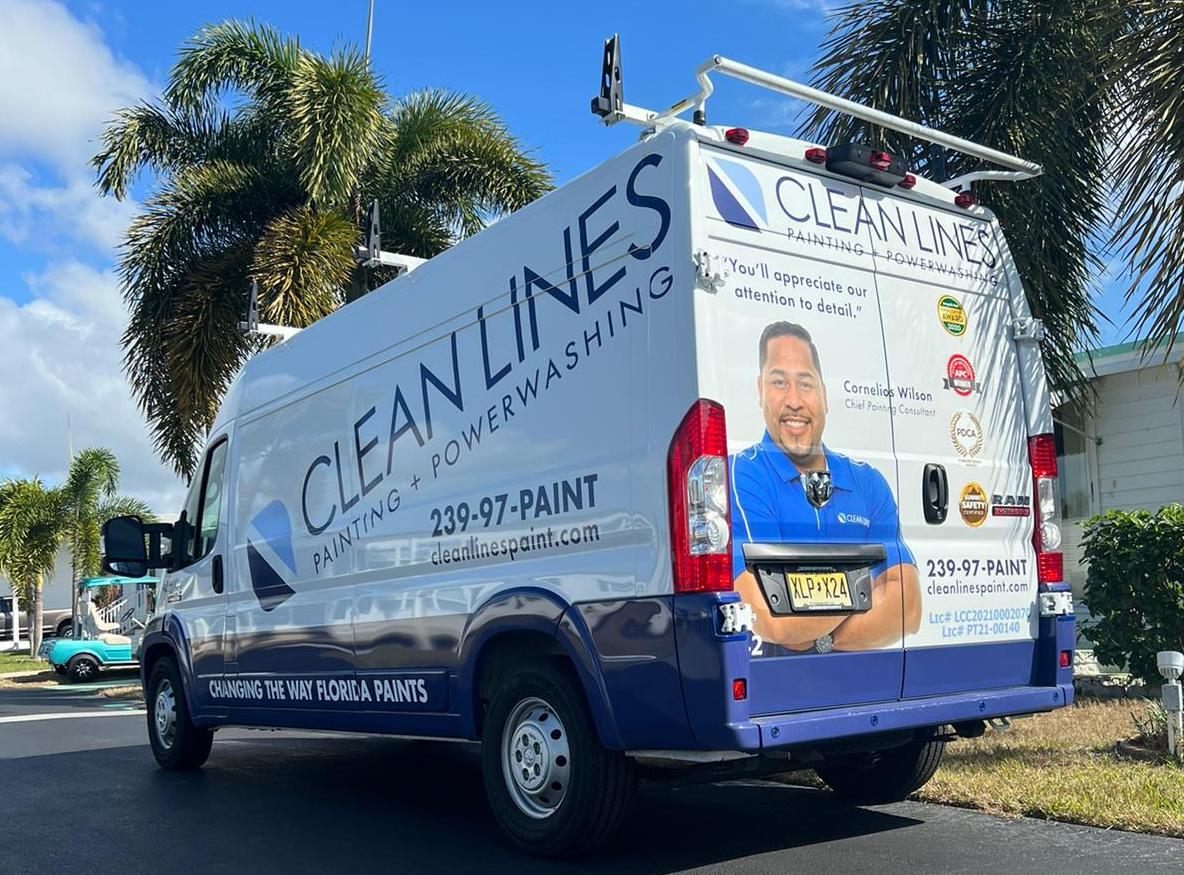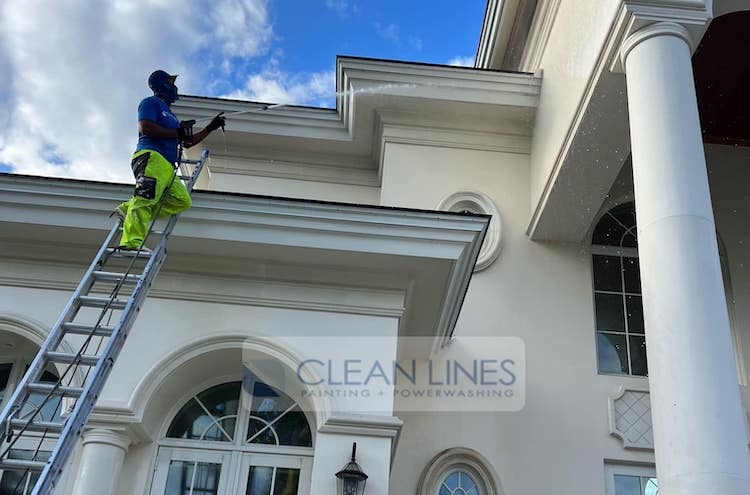The Impact of Florida Weather on Exterior Paint

Florida's unique climate presents a variety of challenges for homeowners, especially when it comes to maintaining exterior paint. The salty sea breeze, sunny days, and humid air may sound nice for some but these elements also wreak havoc on exterior paint! In this article we are taking a look at some specifics: how Florida’s weather affects your paint and how you can prevent unnecessary damage to it or the structure of your home.
Why Exterior Paint Does Not Like High Humidity
Humidity, one of the more well known aspects of Florida’s climate, is not a friend of exterior paint. For two main reasons: difficult application and poor longevity.
- Application: Because paint needs to be applied to a dry surface, the “when” and “how” of exterior painting in FL needs to be carefully considered. If it is applied to a wet or damp surface the moisture trapped beneath will likely cause blistering or peeling within a short amount of time. No thank you!
- Longevity: There are simply some climates that are better and others worse for the longevity of exterior paint. The high moisture environment of FL makes homes all the more susceptible to the damaging growth of unsightly mold and mildew. But not all is hopeless! Choosing a paint that is specifically designed to be breathable, allowing moisture to escape without damaging the paint, can significantly help to prolong your exterior paint’s life.
Heat and Sun Exposure: Good for Exterior Paint?
Unfortunately, not so much. Unlike us, who may benefit much from the sun’s rich vitamin D rays, exterior paint has no such appreciation. The relentless Florida sun and its harsh UV light can cause fading and deterioration over time, compromising the paint's structural integrity and leading to chalking—a process where the paint surface becomes powdery. In fact, a good way to check and see if your home is due for a fresh coat of paint is to rub your finger across the siding. If you can’t see your fingertip because it's covered with oxidized paint, it may be time.
Salty Air: Another Florida Paint Challenge
For homes near the coast, salty air is an additional problem for exterior paint. Over time salt builds up and that nicely painted siding begins to corrode and wear down (Including your wood trim/siding). But this one comes with good news! Salty siding can be prevented with regular pressure washing and cleaning, which will keep the surface free from damaging salt buildup.

Exterior Paint Maintenance: Tips for Florida Homes
Just because FL weather puts up a fight against your home's exterior paint, doesn't mean it has to win. There are plenty of ways that the right choices and regular maintenance can help reduce the potential of climate related issues. To name a few:
- Regular Inspections and Touch-ups: Inspect your exterior paint frequently, looking for early indicators of moisture intrusion or sun damage like cracking, bubbling, or peeling. Early touch-ups can prevent the need for a full repaint.
- Regular Power Washing: Have your home professionally power washed on a consistent basis to keep salty air from eating away at your siding’s paint.
- Professional Repaint: Get a fresh start with a fresh coat of paint! FL painters know the ins and outs of exterior painting in this unique climate. They will ensure not only the right paint is used but the whole process from preparation to application is done in the right way, at the right time, and with the best results.
Need Help Assessing Your Home’s Exterior Paint?
Clean Lines painting has been in the FL painting business for over 20 years! We know how to apply paint that looks beautiful and stands the test of time. We’re here to help with all your exterior painting and maintenance needs!
Frequently Asked Questions
Q: How often should I repaint my home in Florida to maintain its exterior?
Repainting every 5 to 7 years is generally recommended, though this can vary based on the quality of the paint used, the home's exposure to the elements, and the level of maintenance.
Q: Can high-quality paint prevent mold and mildew growth on my home's exterior?
While no paint can completely prevent mold and mildew, high-quality paints with mold and mildew inhibitors can significantly reduce their growth.
Q: What is the best time of year to paint my home in Florida?
The best time is during the dry season, typically from late fall to early spring, when humidity is lower and rain is less frequent.
Q: How do I know if my paint is UV resistant and suitable for Florida weather?
Look for paints labeled as UV-resistant or formulated for exterior use in tropical climates. Consulting with a professional can also provide guidance tailored to your specific needs.













